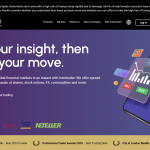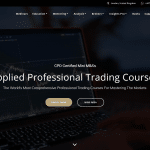A forex broker acts as a financial intermediary that allows individuals and institutions to trade currencies in the global foreign exchange (FX) market. Whether through desktop platforms, mobile apps, or algorithmic systems, forex brokers facilitate access to currency pairs, provide leverage, and execute trades on behalf of clients. This article explains what a forex broker does, how they operate, and what role they play in retail and institutional trading.
Core responsibilities of a forex broker
1. Provides access to the forex market
Forex brokers connect retail traders to liquidity in the global currency market. They allow users to:
- Buy and sell currency pairs like EUR/USD, GBP/JPY, and USD/CAD
- Access major, minor, and exotic pairs
- Trade 24 hours a day, 5 days a week
2. Offers trading platforms
A broker provides trading interfaces such as:
- MT4 and MT5 – Popular for retail traders and algorithmic systems
- Proprietary platforms – Custom tools like OANDA Trade or AvaTradeGO
- cTrader, TradingView, and other advanced systems
These platforms enable charting, technical analysis, order execution, and risk management.
3. Executes client orders
Forex brokers ensure that your buy/sell orders are processed either:
- Internally (Dealing Desk) – Acting as the counterparty
- Externally (STP/ECN) – Routing to banks or liquidity providers
- Execution models influence pricing, spreads, and slippage
4. Provides pricing, spreads, and leverage
Brokers quote bid/ask prices based on live interbank rates or internal pricing models. They also:
- Charge spreads and/or commissions
- Offer leverage (e.g., 1:100 or 1:500) to amplify position sizes
- Enforce margin requirements and stop-out levels
5. Manages client accounts and deposits
Forex brokers handle:
- Client registration and KYC verification
- Deposits and withdrawals via bank, card, crypto, or e-wallet
- Account types – Demo, Standard, ECN, Raw, or Cent
They also ensure client funds are segregated and safe (especially when regulated).
6. Provides education and analysis tools
Most brokers offer value-added services including:
- Trading education – Webinars, courses, and eBooks
- Market analysis – Daily insights, economic calendars, and signals
- Risk management tools – Stop-loss, take-profit, and exposure controls
Types of forex brokers
| Broker Type | How It Works | Best For |
|---|---|---|
| Market Maker (DD) | Takes the opposite side of your trade | Beginners, fixed spread users |
| STP (Straight-Through) | Routes orders to external providers | Retail traders, low latency |
| ECN (Electronic Comm.) | Matches orders in a liquidity pool | Scalpers, institutional traders |
How forex brokers make money
- Spread markup – Difference between bid and ask prices
- Commission per trade – Usually charged on ECN accounts
- Swap/rollover fees – Interest on overnight positions
- Inactivity or withdrawal fees – Applicable in some cases
Example workflow of a forex broker
- Client opens an account and verifies identity
- Deposits funds in USD, EUR, or local currency
- Places a trade on MT5 (e.g. buying EUR/USD at 1.1000)
- Broker executes the order and charges a spread/commission
- Client closes the trade and either books a profit or loss
- Withdraws funds or opens another position
Key takeaways
- A forex broker enables access to the FX market, providing platforms, pricing, leverage, and execution
- Brokers can be market makers or ECN/STP providers, depending on their business model
- They offer tools for technical analysis, education, and account funding
- Most earn from spreads, commissions, and swap fees
- The broker you choose directly affects cost, speed, and trading success
Frequently Asked Questions
What is the role of a forex broker?
A forex broker acts as the gateway to the currency markets, executing trades, offering platforms, and managing client accounts and pricing.
Do forex brokers trade against you?
Some brokers (market makers) may take the opposite side of your trade. ECN and STP brokers route trades to external liquidity providers.
How do forex brokers make money?
Brokers earn through spreads, commissions per trade, and sometimes overnight swap fees or inactivity charges.
Is a forex broker necessary to trade?
Yes. You need a broker to access currency markets unless you’re trading directly through an interbank institution.
Are all forex brokers regulated?
No. Only some brokers are licensed by authorities like the FCA, ASIC, CySEC, or FSCA. Always verify a broker’s regulatory status before opening an account.




Leave a Reply
Please log in or register to share your thoughts.